

.jpg)
The ‘My voice, My choice’ resolution is adopted by a majority of the EU parliament. A Christian MEP says “it is painful to see that the majority of the European Parliament does not recognise that unborn life need protection”.
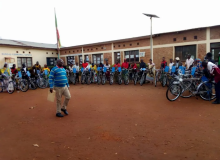
My days in Burundi exposed me to its overwhelming poverty, but Christians can help by contributing to organizations with well-conceived plans to help Burundians deploy their own resources effectively.
.jpg)
The cost of living and the defence of Europe are the issues that most concern citizens, but priorities vary from country to country. How should Christian politicians in the European Parliament act? We asked the European Christian Political Party.
.jpg)
The Court of Justice of the EU has ruled in favour of two men who married in Germany but whose legal union was not recognised in Poland.
.jpg)
The historic Anglican churches in Ireland and Spain say they will not join the Global Anglican Communion. Anglicanism has a limited presence in Europe, with 23 million baptised members.

The Anglican movement rejects the authority of the Archbishop of Canterbury. “We have not left the Anglican Communion; we are the Anglican Communion”, they say.
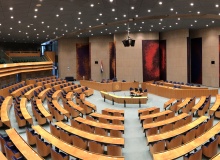
Meanwhile, another initiative to resist pressure from the EU on this issue was tabled by two Christian parties and passed.
.jpg)
A year after Justin Welby's resignation, the Bishop of London becomes the first woman in history to lead the Church of England. She faces an institution divided between conservatives and liberals, both within England and globally.
.png)
A new report on French television warns of the influence of evangelicals in European politics. Julia Doxat-Purser responds based on her decades of experience in political dialogue in Brussels.
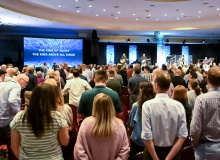
The annual conference in Wisła will take place 16-21 May, to “unite, equip, and resource” evangelical leaders”.
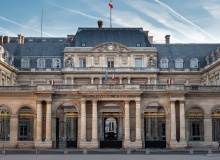
The highest court for disputes against the state rejected a request from a pornographic distributor to remove age verification measures.

Ukrainians celebrated their 34th anniversary of breaking from the Soviet Union with deep gratitude to God, and for their loved ones who have given their lives to keep their country free.

Between 1933 and 1938, hundreds of Ukraine’s brightest minds were executed, imprisoned, or forced into silence. The regime targeted the very idea of Ukrainian identity.

The German Christian centre forward knelt dow in the pitch after scoring a penalty. She wanted to “briefly experience this moment with God”.
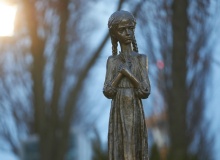
Stalin, determined to eliminate Ukrainian nationalism and any threat of separatism, resolved to break the will of the Ukrainian people, not with guns, but with hunger.
.jpg)
In war, the first casualty is truth. Nowhere is this more evident than in the long and brutal campaign waged by Moscow — not only against Ukraine’s sovereignty but against its very identity.
.jpg)
It is deeply encouraging to witness how brothers and sisters in Poland continue in the work for God’s Kingdom and look for new ways to proclaim the Gospel and equip believers.
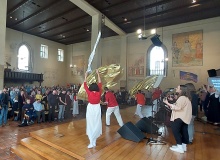
The third annual National Day of Prayer was held at Bethlehem Chapel on Pentecost Sunday. The chapel, founded in the 14th century, played a central role in the early Bohemian Reformation.
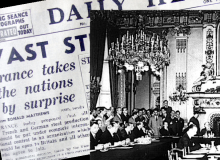
Headlines the world over last Friday announced the new pope, Leo XIV. Headlines 75 years ago on May 10, 1950, announced a new audacious plan for peace: ‘France takes the nations by surprise’, ‘Schuman bomb’.
.jpg)
What motivates these emigrants and their children, after years in Germany, to move to a place where their families suffered decades of humiliation, persecution and oppression? Where does the sudden enthusiasm for Russia come from?
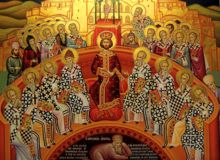
The 4th century began with a period of tolerance towards Christianity, but was soon overshadowed by intense repression. However, it ended with a Christianized Empire. How did this process unfold? A historical summary on the 1,700th anniversary.
.jpg)
Ahead of Sunday’s elections, the Protestant, Catholic and other churches ask to “vote for parties that stand up for our democracy”. Alice Weidel’s AfD party rises in the polls amid tough immigration debates.
.jpg)
A Ukrainian evangelical leader calls on Europeans to “take primary responsibility” in the resolution of the conflict.
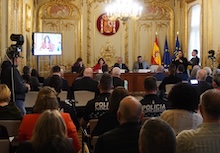
The federation of Spanish municipalities seeks to bring awareness-raising, training and dialogue with faith groups in local contexts to Europe. It is a two-year EU-funded project in collaboration with universities.
.jpg)
The latest Eurostat data show that those with children at home consider themselves more satisfied than average. Young people are more positive than older people.

Las opiniones vertidas por nuestros colaboradores se realizan a nivel personal, pudiendo coincidir o no con la postura de la dirección de Protestante Digital.